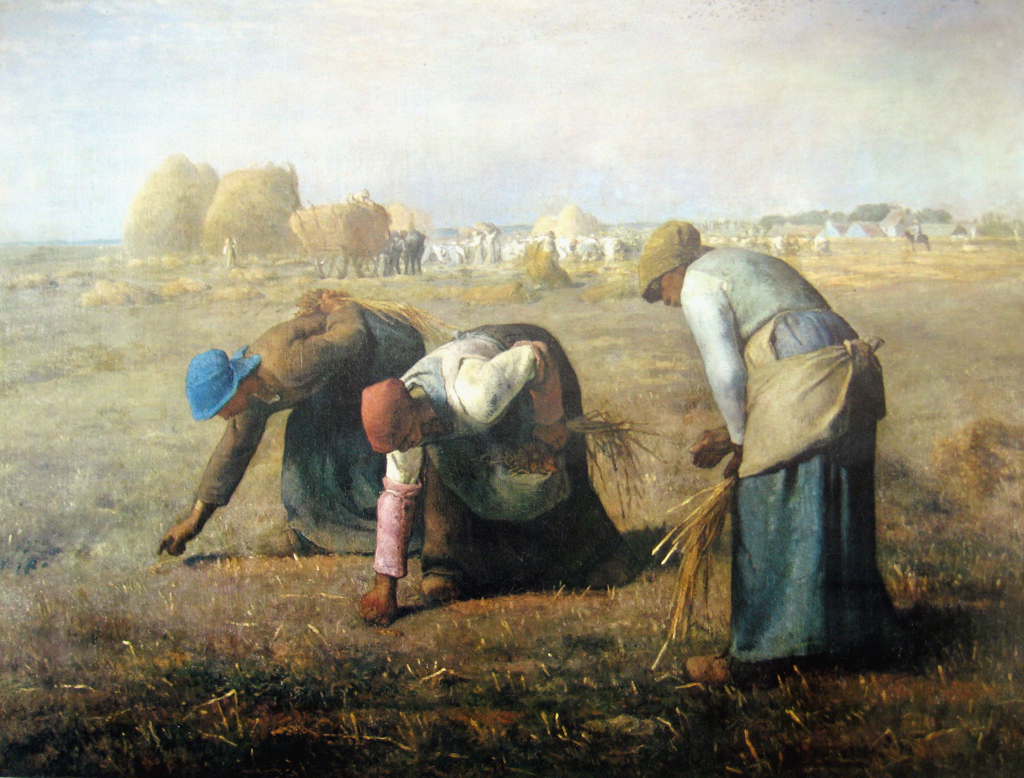We’ve all been there: taking something in (semi-) prime condition that you know shouldn’t be taking. This post doesn’t refer to theft but instead the act of sifting through someone’s discarded goods or valuables. Specifically, this covers the act of gleaning.

One man’s refuse is another man’s refreshment.
By definition, gleaning means to gather (leftover grain or other produce) after a harvest. Generally, it pertains to those who scavenge leftovers or discarded belongings of any sort, but mainly the term focuses on foraging food – an act that has a history of stemming back to biblical times. In the Books of Deuteronomy and Leviticus, farmers should leave corners of their fields unpicked and refrain from picking up harvested crops that have been dropped (or “gleanings”); these are both acts of indirect charity as the gleanings are to be left primarily for the poor.
Eventually, Catholic European kingdoms (primarily in England and France) enforced this biblical scripture into protected law.
Today, gleaners are also referred to as “dumpster divers.” Despite the derogatory nickname, gleaners are most often than not still freely able to pick food as much as they please as long as they don’t take someone’s currently owned property. 50% food waste (Collegian quote).
Sources:
http://www.dictionary.com/browse/gleaning
https://www.kqed.org/bayareabites/119231/urban-gleaning-grows-up
https://www.nbcnews.com/feature/in-plain-sight/gleaning-americas-farms-unused-crops-feed-hungry-families-n181026

